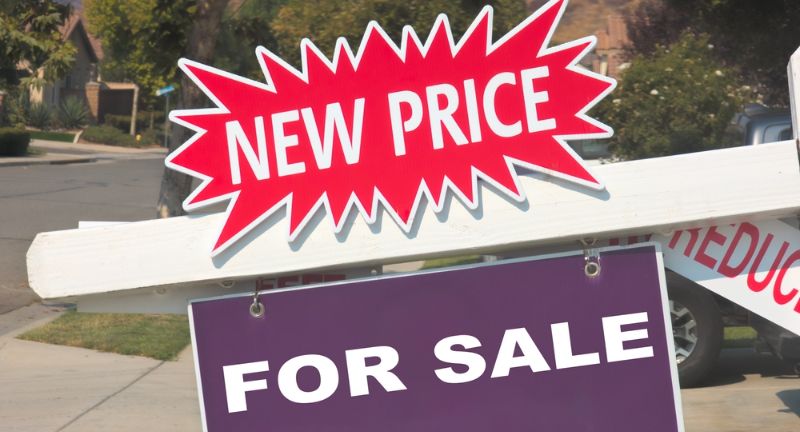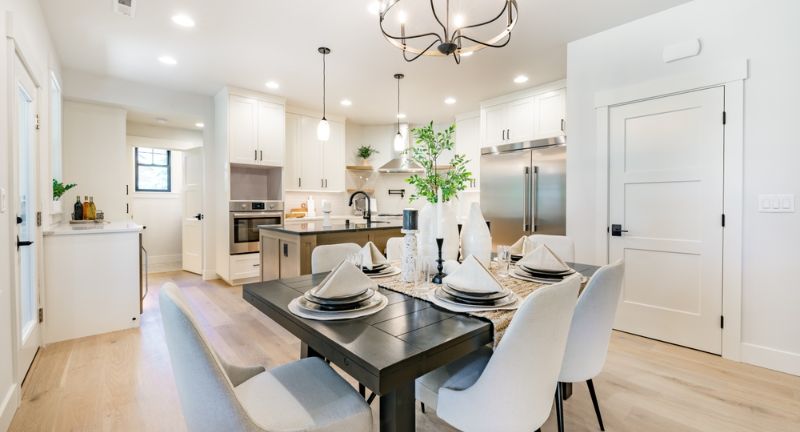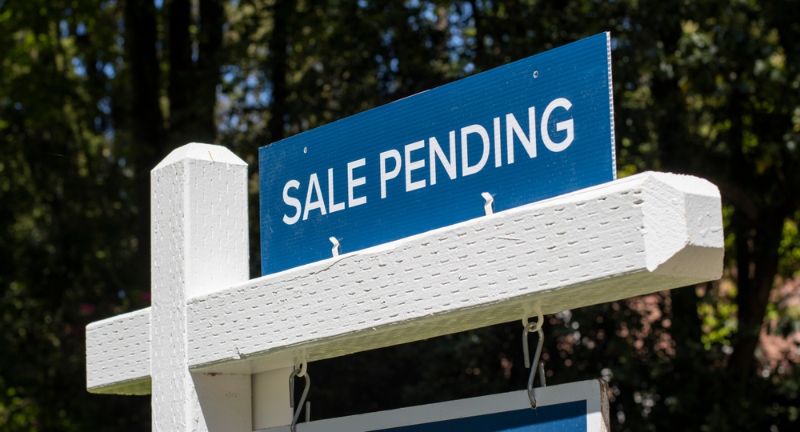REAL ESTATE
Top Mistakes Homeowners Make When Selling—And How to Avoid Them
Published
5 months agoon

Shutterstock
Selling a home is one of the biggest financial decisions most people will make in their lifetime. However, many sellers unknowingly make mistakes that can delay the sale or reduce their profit. From setting the wrong price to neglecting essential repairs, these common missteps can have a big impact on the success of the sale. Fortunately, by being aware of these pitfalls, sellers can take steps to avoid them and ensure a smooth process. Here are the top 10 mistakes people make when selling their home, along with practical tips to help you avoid them.
Overpricing the Property

Shutterstock
Setting the asking price too high can alienate potential buyers. Many sellers believe their home is worth more due to sentimental attachment or upgrades they’ve made over the years. However, buyers are more concerned with market value and comparables in the area. Overpricing can result in a longer listing period and fewer offers, ultimately forcing you to reduce the price later.
Neglecting Curb Appeal

Shutterstock
The outside of your home is the first impression potential buyers have, and neglecting curb appeal can turn them away before they even step inside. If the landscaping is overgrown or the exterior looks worn, buyers may assume the interior has been equally neglected. Simple improvements like fresh paint, new plants, or a tidy lawn can significantly enhance a home’s attractiveness. Don’t let a poor exterior be the reason buyers pass on your home.
Not Staging the Home

Shutterstock
Staging a home helps potential buyers envision themselves living there, which can lead to faster offers. If a home is empty or filled with overly personalized items, buyers might have trouble seeing its full potential. A well-staged home emphasizes the strengths of each room and creates a welcoming atmosphere. Professional stagers can work wonders by using neutral colors, minimal furniture, and accessories to make the space look inviting.
Skipping Necessary Repairs

Shutterstock
Buyers are typically drawn to homes that are in move-in condition. Neglecting small but important repairs, such as fixing leaky faucets or cracked tiles, can make buyers question the overall condition of the property. Many buyers don’t want to deal with additional costs after purchasing a home. Addressing these issues before listing can save you time during negotiations and attract more serious buyers.
Poor Quality Photos

Shutterstock
In today’s market, most buyers begin their home search online, which means photos can make or break their interest. Low-quality, poorly lit, or unattractive photos can turn buyers away before they even schedule a visit. Investing in professional photography ensures your home looks its best online. Bright, clear images highlight the property’s best features and can significantly boost interest from prospective buyers.
Limiting Showings

Shutterstock
Limiting the times buyers can view your home can lead to missed opportunities. If your home is only available for showings at inconvenient times, you may lose potential buyers who are serious about making an offer. The more flexible you are with showings, the greater your chances of getting your home sold. Being available for showings whenever possible allows more buyers to walk through and envision themselves living in your home.
Overlooking Hidden Costs

Shutterstock
Many sellers forget to account for the hidden costs associated with selling a home. These expenses can include agent commissions, closing costs, and any repairs or upgrades required during negotiations. Overlooking these fees can result in financial stress or disappointment once the final offer is made. Planning ahead for these expenses will help ensure you walk away with a profit that meets your expectations.
Selling During Off-Season

Shutterstock
The real estate market has high and low seasons, and selling during the off-season can make it harder to attract buyers. During winter or holiday seasons, buyer activity tends to decrease, which could mean fewer offers. Listing your home during peak seasons, such as spring or summer, increases visibility and buyer demand. Timing your listing correctly can result in faster sales and higher offers.
Being Emotionally Involved in Negotiations

Shutterstock
It’s easy to let emotions influence decisions when negotiating the sale of a home, especially if you’ve lived there for many years. However, emotional involvement can lead to poor decision-making, such as rejecting fair offers or making unwise counteroffers. Approaching negotiations from a business standpoint can help you make clearer, more rational decisions. Remember that the goal is to sell the home, not to get attached to the details.
Not Using a Real Estate Agent

Shutterstock
While it’s tempting to avoid agent commissions by selling your home on your own, this can often lead to costly mistakes. Real estate agents provide valuable expertise, market knowledge, and negotiation skills that can help sell your home faster and for a better price. They also handle the marketing and paperwork, making the process smoother. Without professional assistance, you could end up leaving money on the table or delaying the sale.
Price Competitively from the Start

Shutterstock
Research the local market and price your home competitively from the start. Overpricing may discourage buyers from even considering your property, while pricing too low can cause you to lose money. A competitively priced home attracts more attention and can result in faster offers. Consulting with a real estate agent can help you determine the right asking price based on local comparables and market trends.
Enhance Curb Appeal

Shutterstock
First impressions are crucial, and the exterior of your home is the first thing buyers see. Enhancing curb appeal can be as simple as cleaning up the yard, painting the front door, or adding fresh flowers. These small improvements make the home look well-maintained and inviting. Buyers are more likely to schedule a showing if the home’s exterior looks appealing and well-cared-for.
Stage the Home

Shutterstock
Staging a home can help potential buyers envision themselves living there, increasing the likelihood of receiving offers. A professional stager can arrange furniture and décor in a way that maximizes the space and makes it feel inviting. Decluttering and depersonalizing the home by removing family photos and personal items are also key steps in staging. Buyers are more likely to feel a connection with a staged home and imagine it as their own.
Make Small Repairs

Shutterstock
Small repairs can make a big difference when selling your home. Fixing leaky faucets, repairing holes in walls, and addressing any cosmetic damage will make the home feel well-maintained. Buyers tend to overestimate the cost of repairs, so taking care of them before listing can eliminate potential concerns. A well-kept home is more likely to attract offers from serious buyers who want a move-in-ready property.
Invest in High-Quality Photos and Videos

Shutterstock
Since most buyers start their search online, high-quality photos and videos are essential for capturing their interest. Hiring a professional photographer ensures that your home looks bright, spacious, and inviting in its online listing. Virtual tours or video walkthroughs can give buyers a more in-depth feel for the property, even before scheduling a visit. With great visuals, your home is more likely to stand out among the competition and attract serious inquiries.
Be Flexible with Showings

Shutterstock
To sell your home quickly, make it as easy as possible for buyers to schedule a showing. Limiting showings to certain times or days can result in missed opportunities. Be flexible and allow buyers to view the home at times that work for their schedule. The more accessible your home is, the more likely it is to attract offers from serious buyers.
Budget for Selling Costs

Shutterstock
Selling a home comes with various costs, from agent commissions to closing fees and potential repairs. It’s important to budget for these expenses ahead of time to avoid surprises when closing the sale. By setting aside funds for these costs, you’ll be more prepared when offers come in and avoid unnecessary stress. Understanding and planning for these expenses ensures a smoother transaction and helps you reach your financial goals.
Sell at the Right Time

Shutterstock
Timing can have a significant impact on how quickly your home sells and for how much. Listing your home during peak seasons, such as spring and summer, typically brings more buyers and higher offers. If possible, avoid selling during off-seasons like the winter holidays, when buyer activity slows down. Timing the sale correctly can maximize your chances of getting the best price in a shorter timeframe.
Stay Objective During Negotiations

Shutterstock
Negotiating the sale of your home can be emotionally charged, but it’s important to stay objective. Keep in mind that buyers are negotiating for a good deal, not attacking your personal attachment to the home. By keeping a business mindset and focusing on the facts, you’ll be more likely to reach a favorable outcome. Staying calm and objective helps ensure that the process goes smoothly and that both parties walk away satisfied.
Hire a Qualified Real Estate Agent

Shutterstock
Hiring a real estate agent can make the selling process much easier and more profitable. Agents bring market expertise, negotiation skills, and a network of contacts to help sell your home faster and at a better price. They also handle the marketing, paperwork, and legal aspects, ensuring everything is done correctly. Working with a knowledgeable agent can give you peace of mind and make the entire process smoother and more efficient.
Conclusion

Shutterstock
Selling your home doesn’t have to be a stressful experience if you know how to avoid the most common pitfalls. By pricing your home correctly, making small but necessary improvements, and working with a qualified real estate agent, you can streamline the process and maximize your return. Remember, first impressions matter, and being flexible with showings can make a big difference. Ultimately, staying objective and prepared throughout the process will help ensure a successful sale. With these tips in mind, you’re ready to tackle the home-selling journey with confidence.
ADVERTISEMENT - CONTINUE BELOW
Related Topics:

About Money+Investing
Money + Investing provides our community with the latest personal and business finance news from around the world. We publish money saving and earning tips to help you make smartier investing decisions. We're inspired by exploring and providing new ways for our audience to achieve financial freedom. We can't wait to share all of our exciting deals, guides and reviews to help you live your financial life to the fullest.
More Money + Investing
-


30 U.S. Cities Where Housing Prices Are Dropping Fast
-


25 Crucial Things to Rethink Before Moving to a New…
-


25 Winter Hotspots for Snowbirds Who’ve Outgrown Florida’s Retirement Vibes
-


Thinking of Becoming a Real Estate Agent? Here Are 25…
-


15 Reasons Why Baby Boomers Are Refusing to Downsize
-


30 U.S. Cities That Offer the Best Value for Working-Class…
-


30 Healthiest Places in America to Retire
-


Top 25 Family-Friendly Cities You’ll Want to Move To
-


The Small Town Boom: 30 Rural Spots Attracting Big City…
-


24 Hot U.S. Markets for Flipping Houses This Year
-


America’s 27 Most Expensive Real Estate ZIP Codes
-


29 Idyllic Places Retirees Are Flocking to in the US